148 student teams of 3 schools join the 4th All-Topic Competition and Exhibition at NSYSU
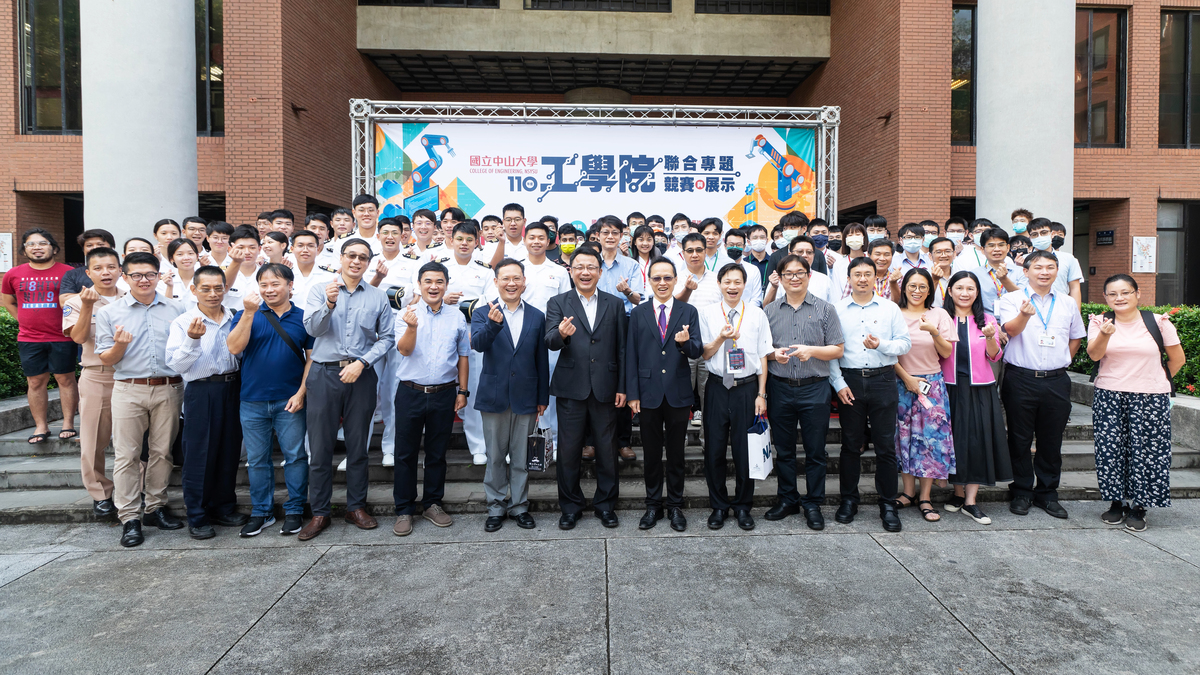
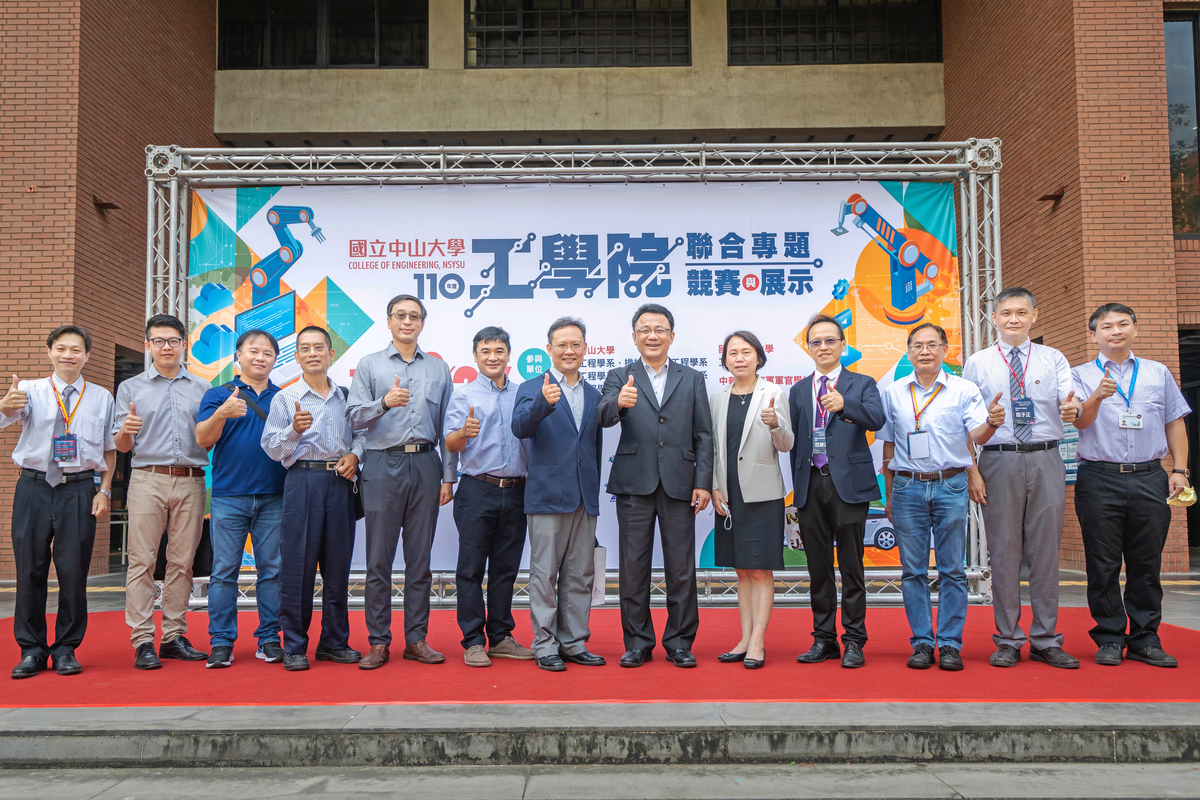
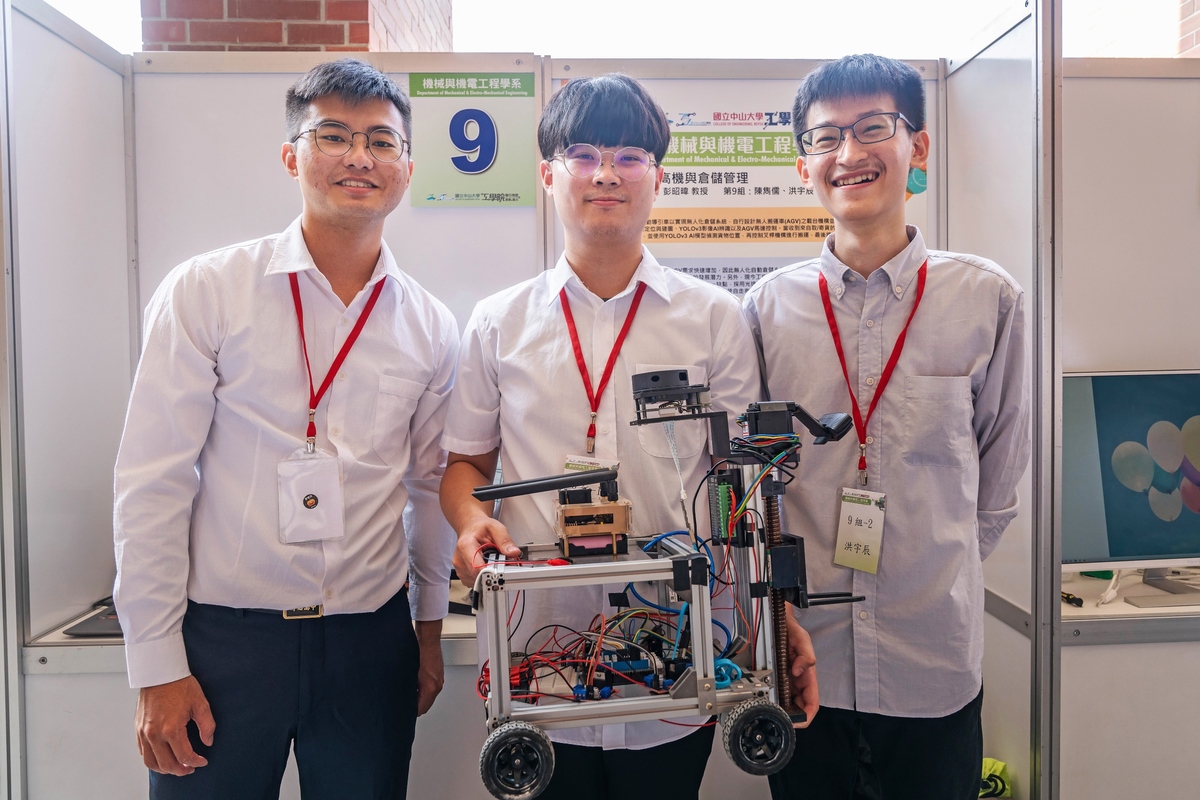
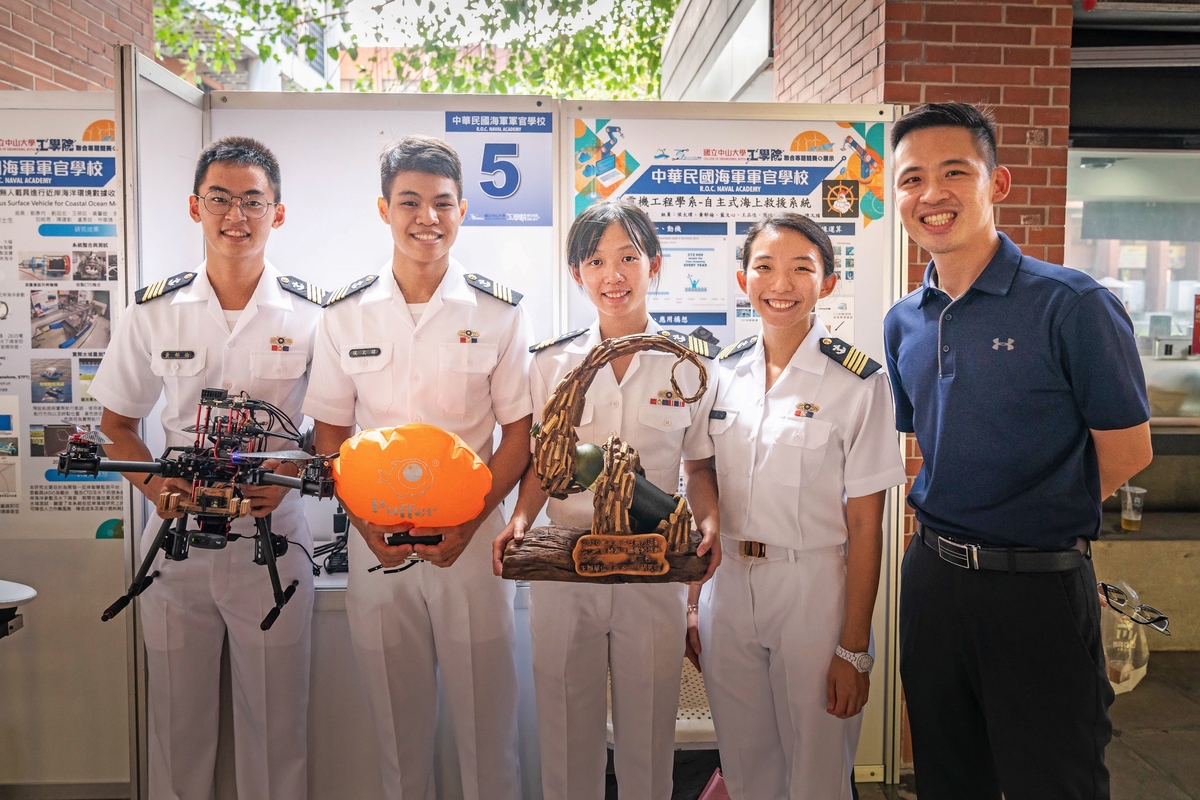
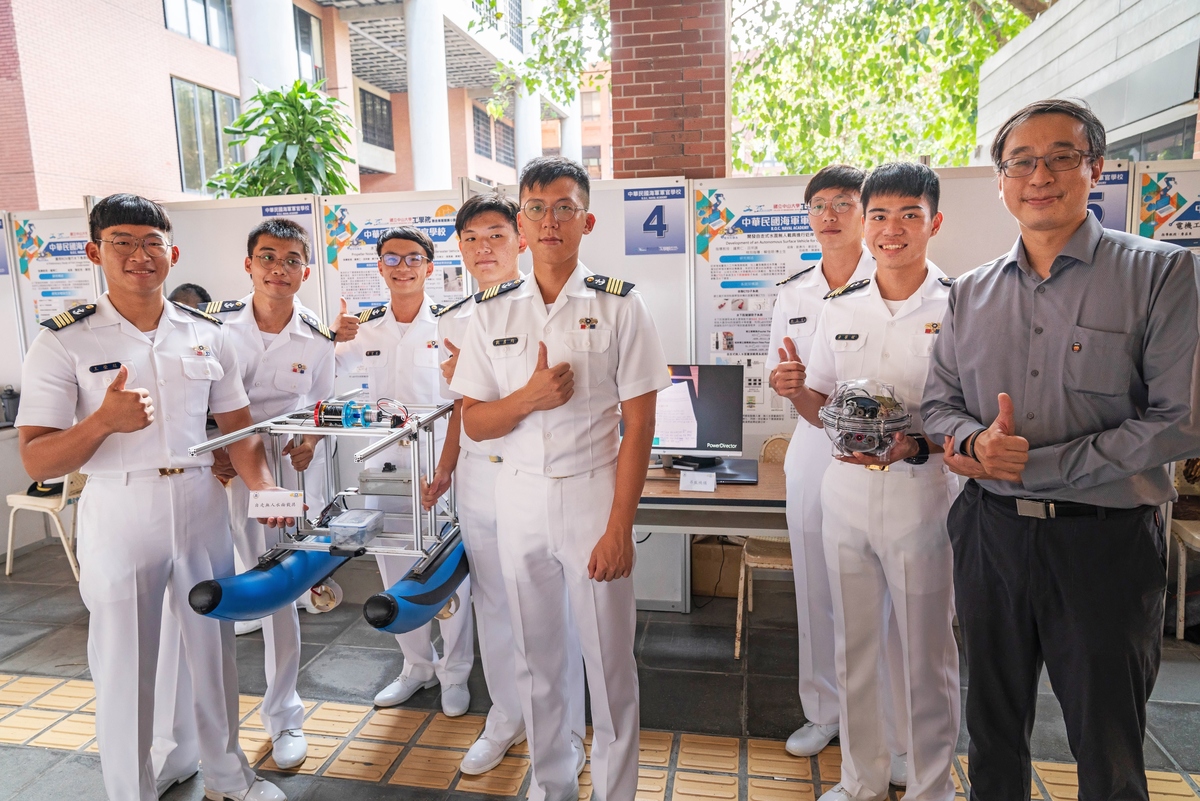
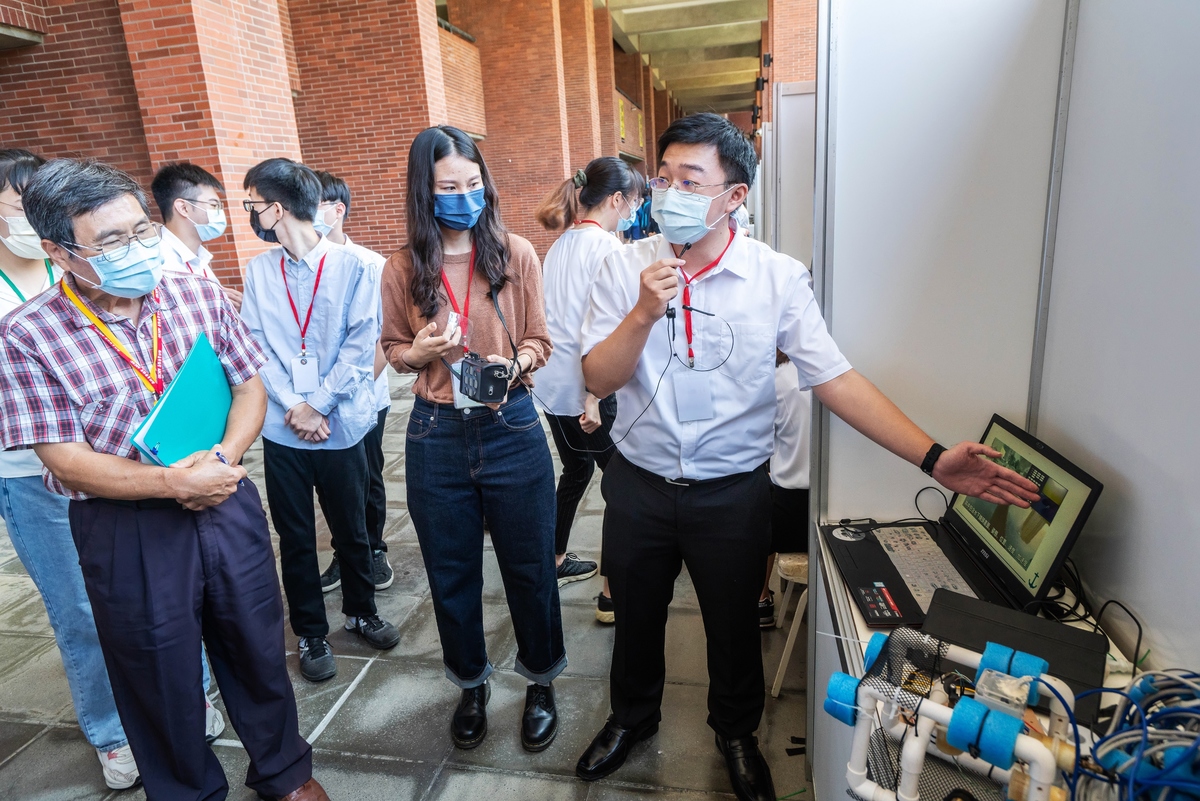
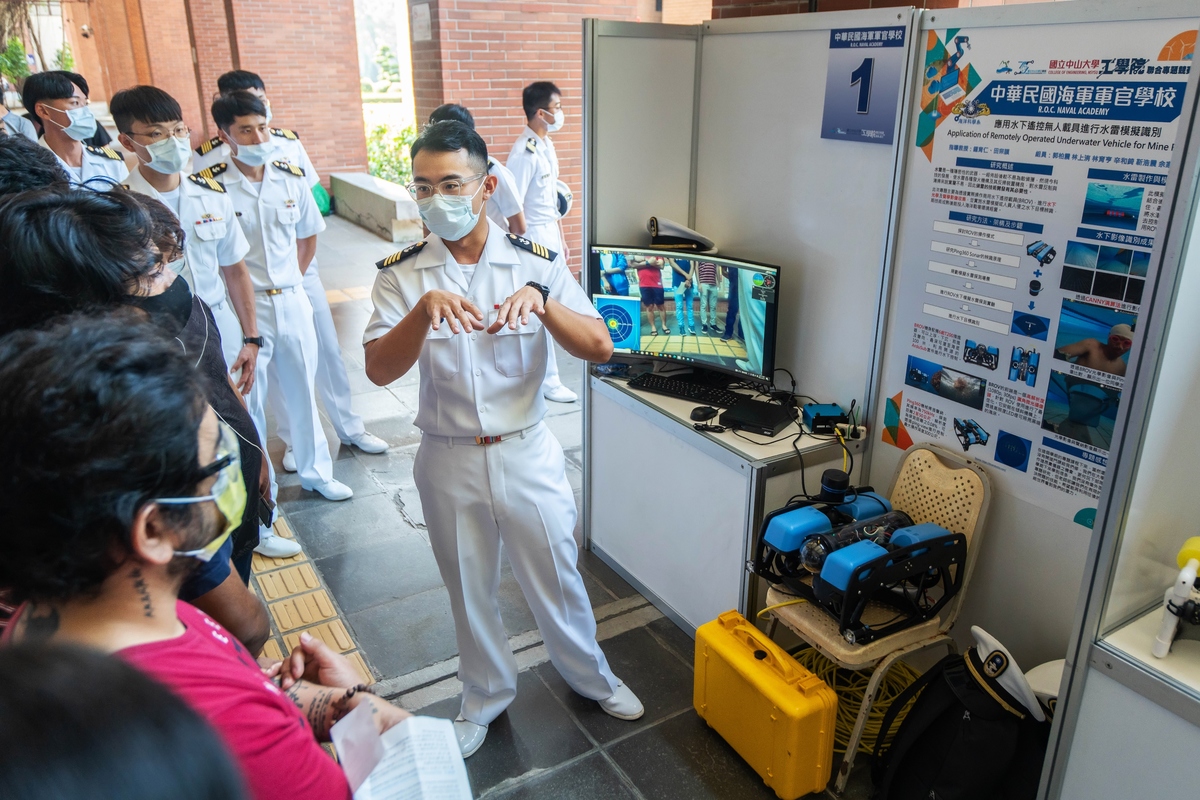
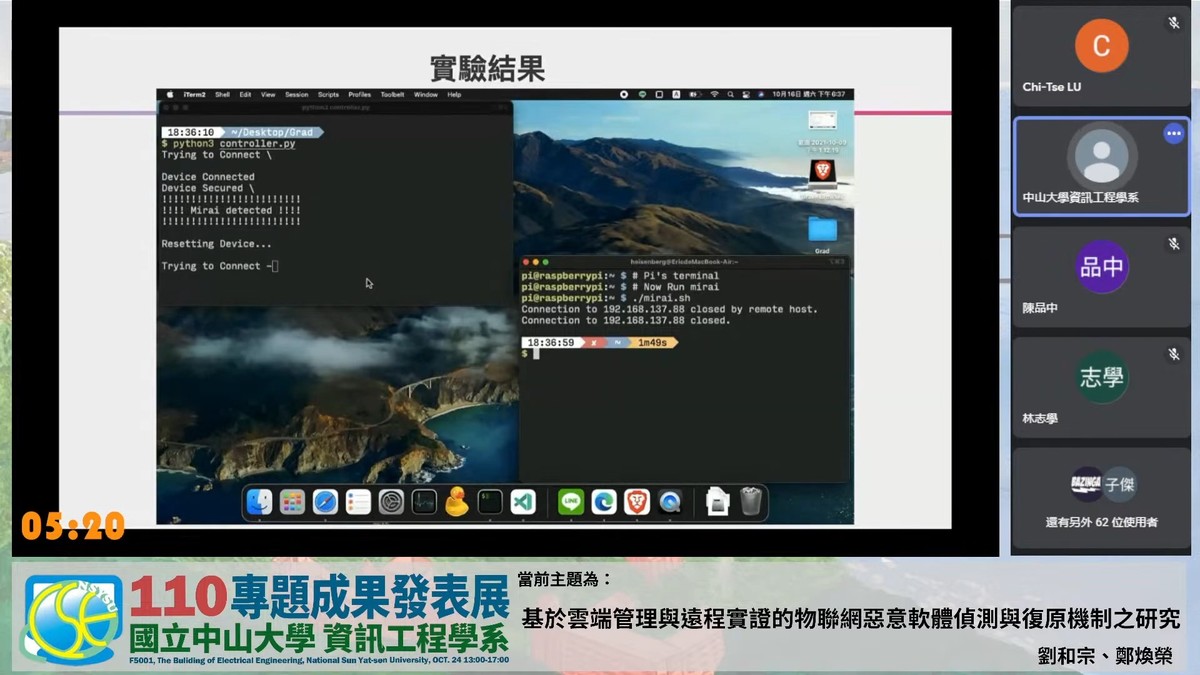
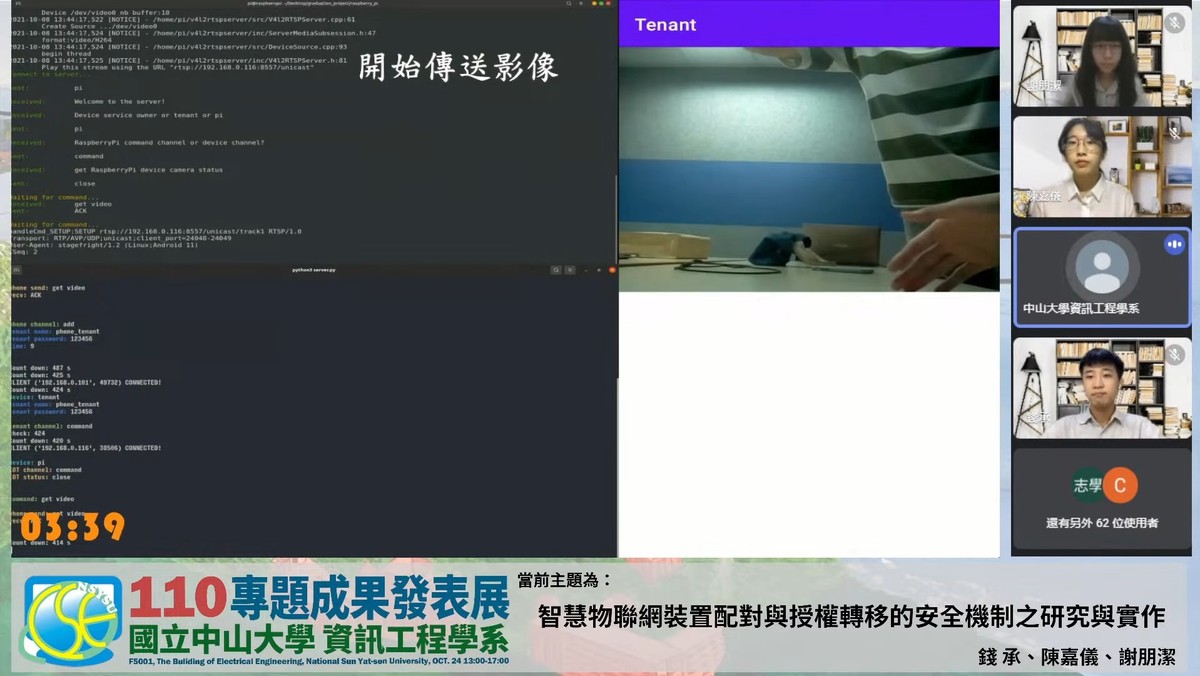
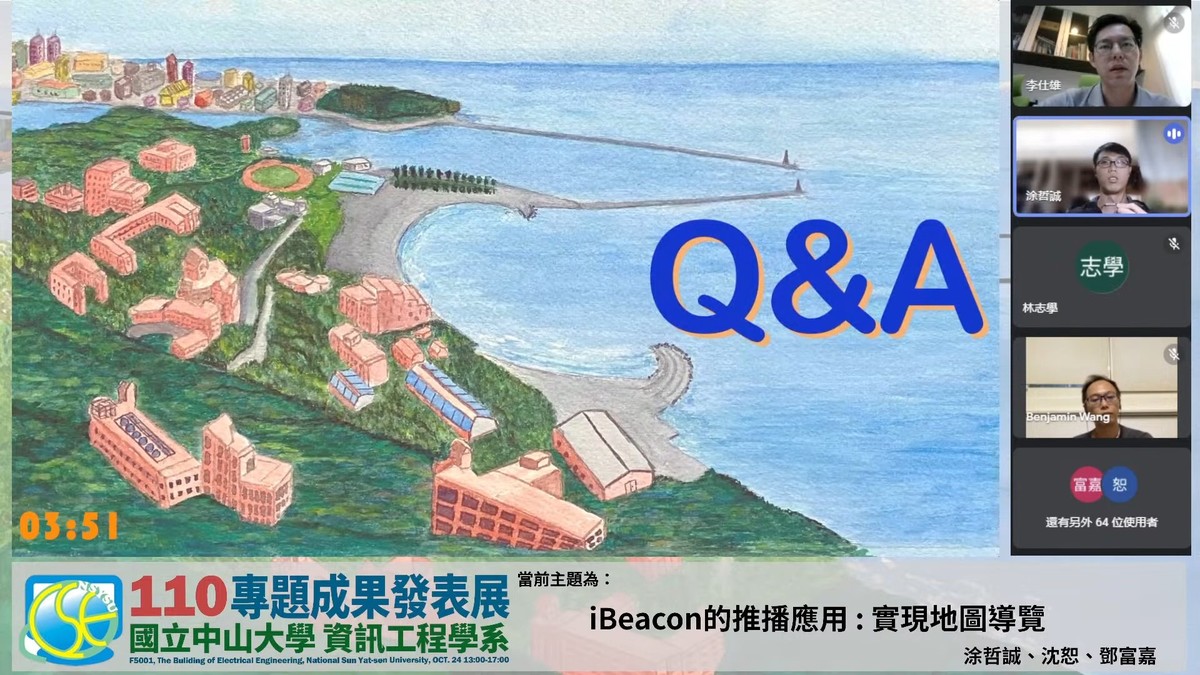
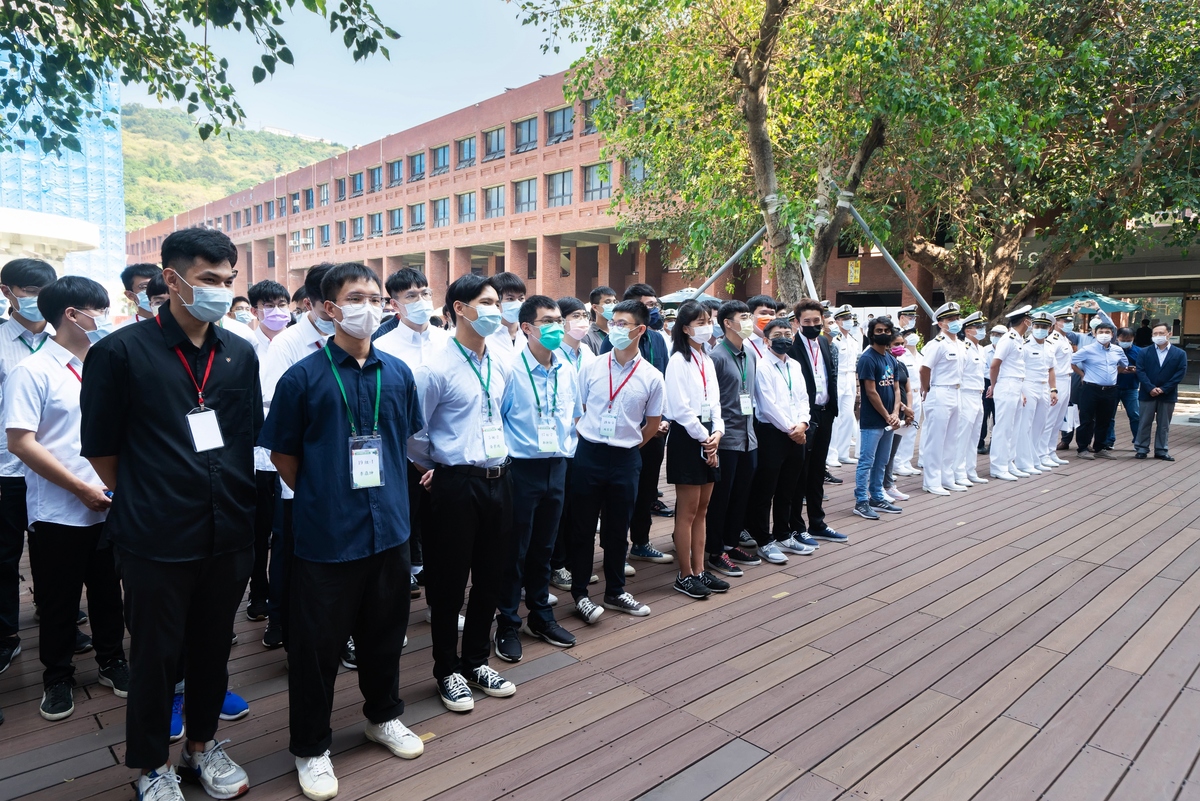
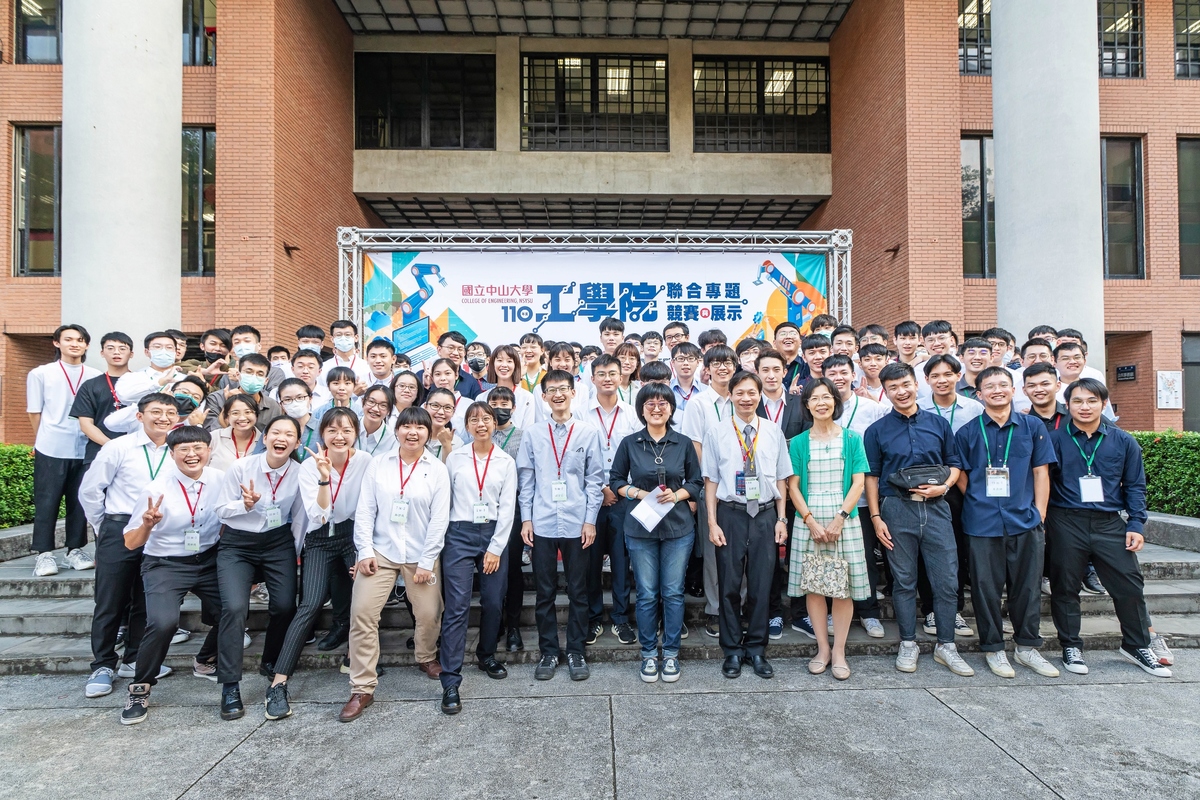
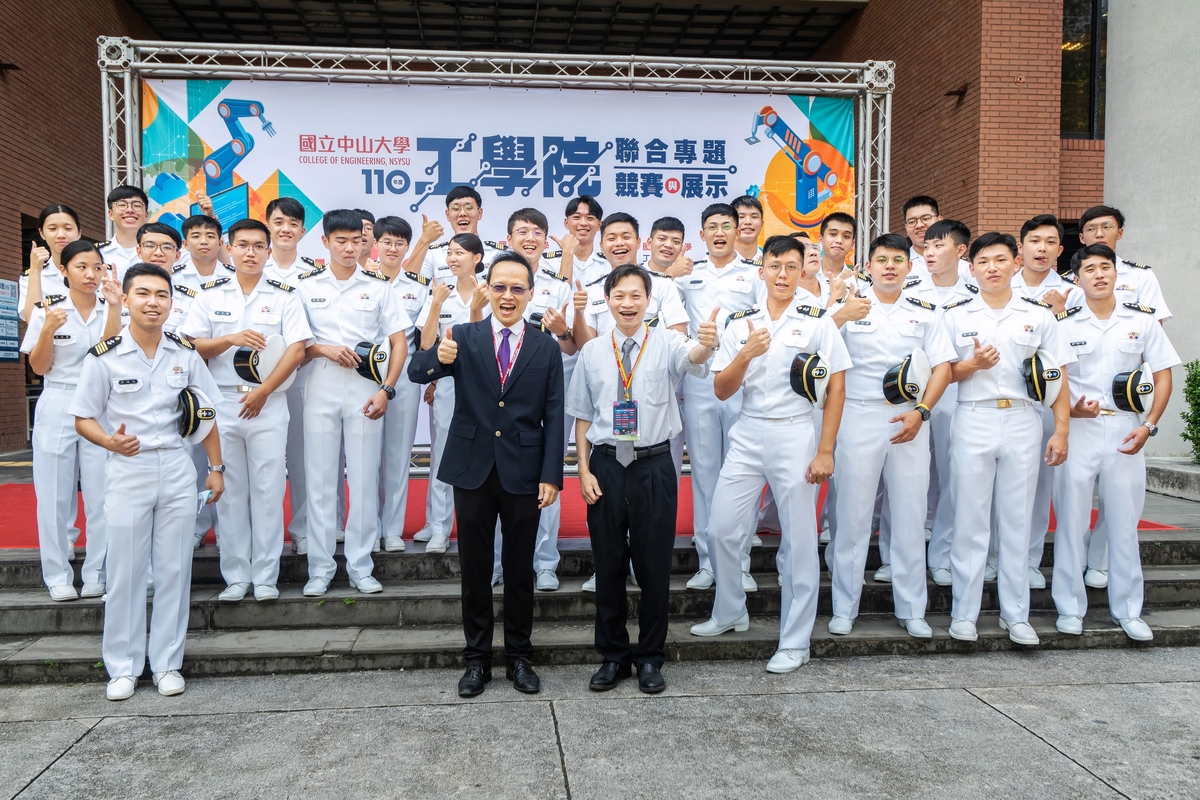
2021-11-11
(Provided by College of Engineering) The College of Engineering at National Sun Yat-sen University organized the annual All-Topic Competition and Exhibition to promote innovation and expand the scope of knowledge exchange. Besides gathering all departments and institutes of the College, it has also expanded the scale of the event by inviting partner schools from southern Taiwan and industry manufacturers to join. A record number of teams joined the event this year – 148 student teams of 10 departments of 3 schools – NSYSU’s Department of Electrical Engineering, Department of Mechanical and Electro-Mechanical Engineering, Department of Computer Science and Engineering, Department of Materials and Optoelectronic Science, Department of Photonics, Institute of Environmental Engineering, and the Institute of Communications Engineering, as well as the Department of Chemical and Materials Engineering of National University of Kaohsiung, and the Department of Marine Studies and the Department of Electrical Engineering of R.O.C. Naval Academy participated in the event and displayed their works. Their combined force made the event open up to new opportunities for interdisciplinary co-learning and cross-campus collaboration.
The participating students brought in their expertise to the All-Topic Competition and Exhibition and provided solutions to various social problems through issue-oriented and multiple-disciplinary projects, showing social care, creativity, and future technological insights. The team of the Department of Mechanical and Electrical Engineering of NSYSU comprising students Tung-Lin Tsai, Huang-Ming Lo, Yao-An Chuang, and Kuo-Lun Huang noticed the numerous challenges faced by people with vision impairment. To improve the functions of the traditional white canes, the team designed a multi-functional cane with image analysis, edge computing, and combined with the functions of a cellphone and a vibration sensor. The image analysis function can find the position of the blind guide brick, while the vibration sensor can detect the surrounding danger. These functions can guide the visually impaired people when they go out and help them return home safely. The team of the Department of Electrical Engineering including students Yen-Ting Wu and Chen-Hao Chao explored the issue of long-term care to promote innovation in elderly care. They developed a system for remote cardiac sound diagnosis: the electronic stethoscope obtains the analog signal of the cardiac sound and sends it to the medical institution after digital filtering and signal graphic processing. Subsequently, the machine learning model assists in the diagnosis and treatment recognition and recommendations. It is a great way to help long-term care patients without the need for commuting. Besides intelligent medicine and social care, the projects of many student teams focused on information security, national defense, and other everyday and military security issues. To prevent hackers from capturing contents in emails through servers and to ensure information security in daily life, Yu-Po Peng, Pin-Chung Chen, and Kuan-Yu Ke of the Department of Computer Science and Engineering of NSYSU proposed a plug-in email encryption system. The system prevents malicious snooping and information leakage by making the information sent by users invisible to the server through the functions of key generation, attribute-based encryption and ciphertext search.
Under the guidance of the Director of the School of Academic Studies of R.O.C. Naval Academy Professor Tsu-Hsu Yan, students of the Academy’s Department of Marine Science and the Department of Electrical Engineering, also located in Kaohsiung, joined the All-Topic Competition and Exhibition for the first time. They exhibited works including smart unmanned surface vehicles, underwater vehicles and unmanned aerial vehicles and instruments measuring temperature, salinity, and depth that can be used for underwater acoustic and optical image recognition, underwater noise measurement, and nearshore ocean data collection. Students of the Department of Marine Science – Po-Chen Kuo, Shang-Wei Lin, Yu-Heng Lin, Ho-Chi Hsin, Hao-Chen Chin, Chia-Tung Yu, and Hung-Kai Wu produced an underwater mine target simulator and applied the remotely operated underwater vehicle (ROV) to collect optical and acoustic signals, and finally, to identify underwater targets. After the technology matures, it can be put into operation in the marine battlefield environment. The exhibition of cooperation results also provided cross-college students with opportunities to learn applied technologies related to the operation of national maritime strategies, further consolidate their bilateral strategic alliance partnership and enhance what they researched and learned.
The Department of Chemical and Materials Engineering at the National University of Kaohsiung joined the Competition for the first time as well, and presented results in an area similar to NSYSU’s Department of Materials and Optoelectronic Science via the online platform, through which both departments could observe and learn from each other. With a close connection between the core attainments and professional knowledge, both departments presented technical applications and development trends in the field of materials science and engineering, such as lithium-ion batteries, biomimetic materials, medical alloys, biotechnology testing materials, and other applications in energy technology and biomedicine. Students of NSYSU Department of Materials and Optoelectronic Science said that the collaboration further inspired them to do research and reflect on it. Having seen each other’s works, they discovered that both departments worked on lithium-ion batteries; they look forward to deepening and expanding the existing research foundations, interconnections, and mutual benefits.
The annual All-Topic Competition and Exhibition of the College of Engineering stimulated students’ slasher potential and innovative thinking through various cross-field issues. In addition to cross-campus observation and cross-disciplinary exchange, experts of different fields of the industry, government, and academia were invited to serve as judges, allowing students to understand industry trends and accelerate the industrialization of R&D achievements. Senior Vice President of NSYSU I-Yu Huang acknowledged the event’s accomplishments and expressed his hopes that in the future, the College will continue to expand the event and invite more partner schools and industry manufacturers from southern Taiwan to join the event, and make it a grand annual event in the region for the engineering community. Dean of the College of Engineering Chun-I Fan said that in the post-pandemic era, it is necessary to accelerate the pace of digital transformation. To turn the crisis caused by the pandemic into an opportunity, this year, for the first time, the event was held partly on-site and partly online. The Competition’s exhibition platform for displaying students’ research achievements was optimized to innovate and deepen the spectators’ viewing experience through flexible and diversified digital channels. Judges and people from all walks of life can use live broadcast and online browsing to view the participating students’ thematic works on various topics of the engineering field.
(Edited by Public Affairs Division)
(Provided by College of Engineering) The College of Engineering at National Sun Yat-sen University organized the annual All-Topic Competition and Exhibition to promote innovation and expand the scope of knowledge exchange. Besides gathering all departments and institutes of the College, it has also expanded the scale of the event by inviting partner schools from southern Taiwan and industry manufacturers to join. A record number of teams joined the event this year – 148 student teams of 10 departments of 3 schools – NSYSU’s Department of Electrical Engineering, Department of Mechanical and Electro-Mechanical Engineering, Department of Computer Science and Engineering, Department of Materials and Optoelectronic Science, Department of Photonics, Institute of Environmental Engineering, and the Institute of Communications Engineering, as well as the Department of Chemical and Materials Engineering of National University of Kaohsiung, and the Department of Marine Studies and the Department of Electrical Engineering of R.O.C. Naval Academy participated in the event and displayed their works. Their combined force made the event open up to new opportunities for interdisciplinary co-learning and cross-campus collaboration.
The participating students brought in their expertise to the All-Topic Competition and Exhibition and provided solutions to various social problems through issue-oriented and multiple-disciplinary projects, showing social care, creativity, and future technological insights. The team of the Department of Mechanical and Electrical Engineering of NSYSU comprising students Tung-Lin Tsai, Huang-Ming Lo, Yao-An Chuang, and Kuo-Lun Huang noticed the numerous challenges faced by people with vision impairment. To improve the functions of the traditional white canes, the team designed a multi-functional cane with image analysis, edge computing, and combined with the functions of a cellphone and a vibration sensor. The image analysis function can find the position of the blind guide brick, while the vibration sensor can detect the surrounding danger. These functions can guide the visually impaired people when they go out and help them return home safely. The team of the Department of Electrical Engineering including students Yen-Ting Wu and Chen-Hao Chao explored the issue of long-term care to promote innovation in elderly care. They developed a system for remote cardiac sound diagnosis: the electronic stethoscope obtains the analog signal of the cardiac sound and sends it to the medical institution after digital filtering and signal graphic processing. Subsequently, the machine learning model assists in the diagnosis and treatment recognition and recommendations. It is a great way to help long-term care patients without the need for commuting. Besides intelligent medicine and social care, the projects of many student teams focused on information security, national defense, and other everyday and military security issues. To prevent hackers from capturing contents in emails through servers and to ensure information security in daily life, Yu-Po Peng, Pin-Chung Chen, and Kuan-Yu Ke of the Department of Computer Science and Engineering of NSYSU proposed a plug-in email encryption system. The system prevents malicious snooping and information leakage by making the information sent by users invisible to the server through the functions of key generation, attribute-based encryption and ciphertext search.
Under the guidance of the Director of the School of Academic Studies of R.O.C. Naval Academy Professor Tsu-Hsu Yan, students of the Academy’s Department of Marine Science and the Department of Electrical Engineering, also located in Kaohsiung, joined the All-Topic Competition and Exhibition for the first time. They exhibited works including smart unmanned surface vehicles, underwater vehicles and unmanned aerial vehicles and instruments measuring temperature, salinity, and depth that can be used for underwater acoustic and optical image recognition, underwater noise measurement, and nearshore ocean data collection. Students of the Department of Marine Science – Po-Chen Kuo, Shang-Wei Lin, Yu-Heng Lin, Ho-Chi Hsin, Hao-Chen Chin, Chia-Tung Yu, and Hung-Kai Wu produced an underwater mine target simulator and applied the remotely operated underwater vehicle (ROV) to collect optical and acoustic signals, and finally, to identify underwater targets. After the technology matures, it can be put into operation in the marine battlefield environment. The exhibition of cooperation results also provided cross-college students with opportunities to learn applied technologies related to the operation of national maritime strategies, further consolidate their bilateral strategic alliance partnership and enhance what they researched and learned.
The Department of Chemical and Materials Engineering at the National University of Kaohsiung joined the Competition for the first time as well, and presented results in an area similar to NSYSU’s Department of Materials and Optoelectronic Science via the online platform, through which both departments could observe and learn from each other. With a close connection between the core attainments and professional knowledge, both departments presented technical applications and development trends in the field of materials science and engineering, such as lithium-ion batteries, biomimetic materials, medical alloys, biotechnology testing materials, and other applications in energy technology and biomedicine. Students of NSYSU Department of Materials and Optoelectronic Science said that the collaboration further inspired them to do research and reflect on it. Having seen each other’s works, they discovered that both departments worked on lithium-ion batteries; they look forward to deepening and expanding the existing research foundations, interconnections, and mutual benefits.
The annual All-Topic Competition and Exhibition of the College of Engineering stimulated students’ slasher potential and innovative thinking through various cross-field issues. In addition to cross-campus observation and cross-disciplinary exchange, experts of different fields of the industry, government, and academia were invited to serve as judges, allowing students to understand industry trends and accelerate the industrialization of R&D achievements. Senior Vice President of NSYSU I-Yu Huang acknowledged the event’s accomplishments and expressed his hopes that in the future, the College will continue to expand the event and invite more partner schools and industry manufacturers from southern Taiwan to join the event, and make it a grand annual event in the region for the engineering community. Dean of the College of Engineering Chun-I Fan said that in the post-pandemic era, it is necessary to accelerate the pace of digital transformation. To turn the crisis caused by the pandemic into an opportunity, this year, for the first time, the event was held partly on-site and partly online. The Competition’s exhibition platform for displaying students’ research achievements was optimized to innovate and deepen the spectators’ viewing experience through flexible and diversified digital channels. Judges and people from all walks of life can use live broadcast and online browsing to view the participating students’ thematic works on various topics of the engineering field.
(Edited by Public Affairs Division)
Click Num:
Share
